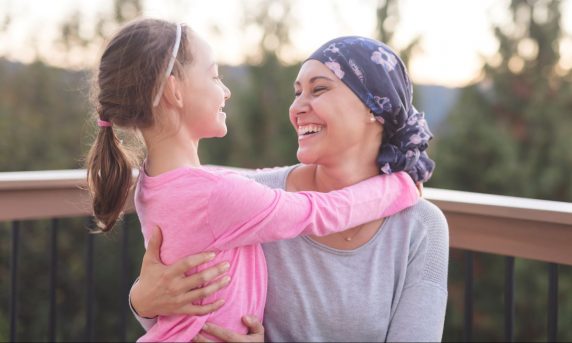By Deb Walker, APRN
Hartford HealthCare Cancer Institute Survivorship Program
Many behaviors can have an overwhelming influence on health. Establishing healthy behaviors and eliminating unhealthy ones can improve health as well as decrease the risk of cancers.
According to a Harvard TH Chan School of Public Health study, close to half of the cancer cases in the United States could be prevented by maintaining healthy lifestyle behaviors. The study looked at the following behaviors which correlated with a lower incidence of cancer:
- Not smoking or using tobacco
- Maintaining a healthy weight
- Increased physical activity
- None to moderate alcohol intake
- Healthy diet
What are the risks of unhealthy behaviors?
Tobacco:
- Smoking is the most preventable cause of cancer worldwide.
- It causes at least 15 different types of cancer including cancer of the lung, larynx (voice box), mouth, esophagus, throat, bladder, kidney, liver, stomach, pancreas, colon, rectum, and cervix.
- Smoking not only causes many cancers, but evidence suggests that it might also affect cancer treatment.
Unhealthy Weight:
- According to research from the American Cancer Society, being overweight is believed to be responsible for approximately 11% of cancers in women and 5% of cancers in men in the United States.
- Obesity was accountable for about 7% of all cancer deaths.
- Being overweight or having obesity is linked to a higher risk of approximately 13 types of cancer including breast, colorectal, uterine, ovarian, pancreatic, liver, and stomach.
Physical Inactivity:
- According to the American Institute of Cancer Research, a study found that being too sedentary increases the risk of three cancers: colon, endometrial, and lung.
- Roswell Park Comprehensive Cancer Center researchers found habitually inactive patients were more likely to die of cancer.
Alcohol Intake:
- There is a strong scientific agreement that drinking alcohol can cause several types of cancer including head/neck, esophageal, liver, breast, and colorectal.
Unhealthy Diet:
- The Journal of the National Cancer Institute Spectrum published a study showing a significant number of cancer cases are associated with poor diet.
- In the United States, it showed 61% of an adult’s diet consists of ultra-processed foods such as snacks, desserts, and ready-to-eat or -heated meals.
- The study found an estimated 80,110 new cancer cases among adults in the United States in 2015 were attributable to eating a poor diet.
What are the benefits of healthy behaviors?
Quitting Tobacco:
- 20 minutes: blood pressure and heart rate return to normal.
- 3 months: circulation improves and lung function increases.
- 1 year: heart disease is half that of someone still using tobacco and heart attack risk drops dramatically.
- 5 years: mouth, throat, esophagus, and bladder cancers are reduced by half and cervical cancer falls to that of a non-smoker.
- 10 years: dying from lung cancer is about one-half that of a person who still smokes.
Healthy Weight:
- Obesity is a risk factor for cancer, and the good news is that it is reversible.
- Maintaining a healthy weight with BMI 18.5-27.5 will improve quality of life and reduce the risk of cancer
- According to Cancer.Net, losing as little as 5% to 10% of your total body weight can reduce your risk of developing cancer.
Exercise:
- For most people, exercise is safe and helpful before, during, and after cancer treatment.
- Research shows that people who exercise at least 150 minutes of moderate physical activity weekly have a lower cancer risk as well as a decreased risk of other chronic diseases, such as heart disease and diabetes. This exercise may also reduce recurrence risk for cancer survivors.
- Avoid sitting for long periods of time.
Diet:
- Diet is among the few modifiable risk factors for cancer prevention
- Research shows that a diet filled with a variety of vegetables, fruits, whole grains, beans, and other plant foods lowers the risk of cancer.
- Limit red meat, sugary and salty foods.
- Add omega-3 rich foods such as fish, nuts, and soybeans.
Coming soon: Healthy Behaviors for Survivors Grant Program
The Healthy Behaviors for Survivors Program will provide cancer patients with health coaching, support, and access to lifestyle programs to improve their overall health and well-being. The program is funded by the Centers for Disease Control and Prevention (CDC) and supported by the Connecticut Department of Public Health to provide funding for lifestyle programs to help increase survivors’ quality of life and assist in decreasing future cancer risk.
Who is eligible, and what services are provided?
- Eligibility: 18y/o or older with a past or present cancer diagnosis
- Provide assessments of health metrics such as weight, blood pressure, glucose, and cholesterol
- Provide risk reduction counseling
- Referrals to smoking cessation, fitness center, nutrition, weight loss, yoga, Zumba, and more
- Track and support lifestyle attendance at 30 days and 90 days


